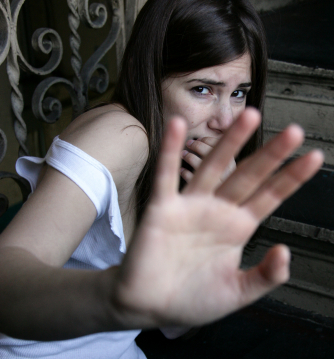
Sexual assault — also called rape — is an act of violence that occurs when any form of sexual contact is forced upon another person without that person's consent. This includes the threat of sexual contact.
Sexual assault can range from unwanted sexual touching to forced sexual intercourse. It can involve situations where agreement to sexual activity is obtained by someone abusing a position of trust, power, and authority.
Sexual assault, abuse and other forms of violence can come from a stranger or someone you know. It can happen with the person you are in a relationship with or a person from a past relationship. There is help available to victims of these crimes.
No one has the right to threaten or force another person to have sexual contact. Sexual assault is a crime, regardless of the past or present relationship between the people involved.
If you or someone you know is a victim of sexual assault, help is available through victim services and other resources. For more information about Sexual Assault, see the Help Starts Here infosheet
There are a lot of myths about sexual assault that are intended to make the victim feel like they are to blame. If you are a victim of sexual assault, you are not to blame. The two videos below are Public Service Announcement about sexual assault and date rape. They provide statistics from the USA, but their messages are just as relevant in Canada.
What you should do
- If the sexual assault has just occurred, go to a safe place.
- If you are in immediate danger or need urgent medical attention, contact the police or ambulance services by calling 911 or the emergency number for your community.
- To report an assault that is not recent (and if you are not in danger), call the non-emergency number for police in your community.
- If you don’t want to call the police, contact VictimLinkBC at 1-800-563-0808 to find a victim service program nearest you for confidential and anonymous support and help.
- Tell someone you trust what happened. Look to trusted friends and family members for emotional support and practical help.
- Go to a hospital, a walk-in clinic or your doctor for a medical examination and treatment as soon as possible after a sexual assault. Even if the sexual assault is not recent, it may be important to go for a checkup.
- If you have questions about a sexual assault or your rights, don’t hesitate to ask a victim service worker by contacting VictimLinkBC at 1-800-563-0808.



